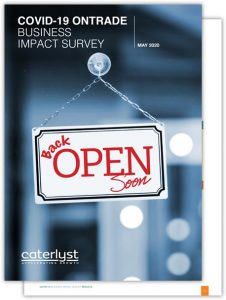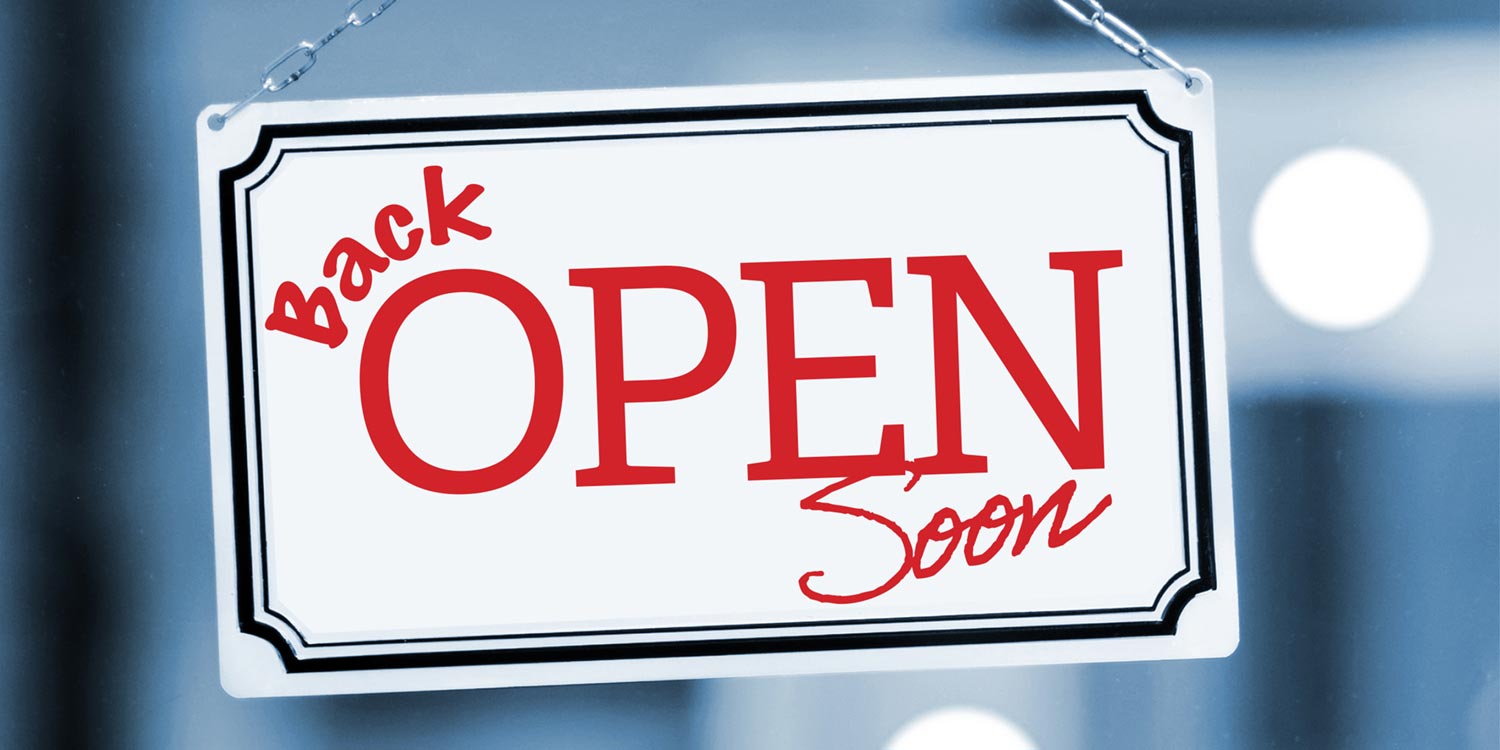Caterlyst ontrade survey provides hope for the future as businesses innovate during Coronavirus epidemic
A recent survey of pubs, bars and restaurants by ontrade data specialists Caterlyst, shows that despite the hugely detrimental impact on profits that COVID-19 restrictions have inevitably created, many business owners remain hopeful for the future with 29% confident that their businesses can survive the outbreak and a further 29% hopeful that their business can possibly thrive after lockdown. However, the support that hospitality business have so far received from banks and insurance companies is heavily criticised.
Immediate Impact
The survey questioned 772 mostly independent restaurateurs and publicans about the impact of COVID-19 on their business. Whilst the report paints a bleak picture currently with 96% of respondents reporting plummeting revenues and 80% shutting up shop completely due to the enforced closures of restaurants and pubs, only 17% have so far been forced to make redundancies, largely thanks to the Government’s furlough scheme of which 82% of the businesses had already taken advantage of.
Radical changes
Necessity has been the mother of invention, with over a quarter of publicans and restaurateurs making radical changes to their business models, as they diversify and innovate to find new income streams. 14.1% of outlets questioned had introduced a take-away option since lockdown, whilst another 8.7% had taken this further by providing a local delivery service for a range of menu and beverage items. Other innovations included the opening of drive-through-style food services and even restyling pubs into village shops, stocking essential, hard to find products, to serve their local communities.
These changes have been implemented to help keep their business afloat and will surely provide a much-appreciated service to their clienteles. Just under half of respondents plan to continue these new services after lockdown, demonstrating that this quick innovation has been successful and profitable for many. Lockdown has offered others the opportunity to refresh and renovate their premises. Some have taken this beyond aesthetics, revising their business plans, suppliers and staffing structures with the aim to resume business with a more profitable approach and a strong marketing strategy.
Stewart Sims, CEO of Caterlyst explains:
“It seems that many pubs and restaurants have just cause to be concerned about what the future holds unless their regular business can resume soon, or a more accessible package of financial support is delivered to them. In the meantime, innovation and diversification may hold the answer to keeping these businesses afloat until – and possibly even after – lockdown is lifted.“

Banks and Insurance companies offer little support for publicans and restauranteurs
70% of businesses questioned had yet to even apply for a business interruption loan scheme (CBILS). Of those that had, respondents were highly critical of the process with long waiting times, poor communications, a lack of response from the banks and a general reluctance to consider a loan. This has led to an overall suspicion of the banks’ motives.
Similarly, for the 55% that had applied for business interruption insurance, just 2.6% of respondents had achieved any success, with many again having negative comments about the process, the response and the immediate refusals.
Essential Support
Across the industry, there is a clear discrepancy in the support being offered by business owners’ landlords. Many respondents have asked for payment holidays, yet just one third have so far been successful. Combined with a steep drop in income, 40% of survey respondents now fear for their future. Many of the survey respondents rely on local and national suppliers for stock and raw ingredients, and the amount of support on offer for them varies. Many local suppliers find themselves in a similar position to publicans and restaurateurs but despite this, they have been flexible in deferring payments and effective on delivery of products. 41% of survey respondents reported that their suppliers had been beneficial with their support, although 23% had received no help and some even cited instances of inflexible and uncompromising suppliers.
Community Hubs
On a positive note, many restaurants and pubs have yet again proved to be the cornerstone of their communities, with some offering accommodation for key workers, whilst others are using their premises to make up meal packs for vulnerable people and NHS staff.
To download a copy of the free report – https://landing.foodservice.online/covid19report



